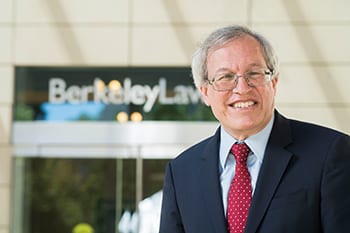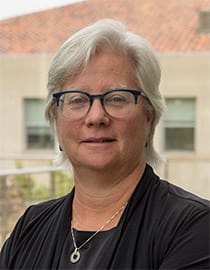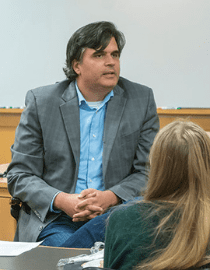
By Andrew Cohen
Some 50 years ago, when Erwin Chemerinsky was competing against Deborah Rhode in Chicago high school debate competitions, he never could have envisioned receiving a prestigious award in her name.
Now Berkeley Law’s dean, Chemerinsky accepted the Association of American Law Schools Deborah L. Rhode Award from the organization’s Section on Pro Bono & Public Service Opportunities on January 6 — two days before she died unexpectedly at age 68.
A professor at Stanford Law School, former AALS president, and founding president of the International Association of Legal Ethics, Rhode was widely recognized for helping expand public service opportunities in law schools.

“It’s hard to express how much this means to me,” Chemerinsky said during the online award ceremony moderated by Berkeley Law Field Placement Director and section chair Susan Schechter. “I admire Deborah tremendously. She is truly a role model for all of us.”
Twice named the most influential person in United States legal education by National Jurist magazine, Chemerinsky was recently named president-elect of the AALS, which he has served in various capacities for decades. He will fulfill that role this year before taking over as president in 2022, becoming the fifth Berkeley Law dean (after Orrin McMurray, William Prosser, Sanford Kadish, and Herma Hill Kay) to occupy that position.
“I am tremendously honored to be the president-elect of the AALS,” Chemerinsky said. “This is a crucial time for legal education in the United States as we deal with the pandemic, online education, structural racism, rising costs, and so much more. The AALS plays a unique and vital role and I am excited to serve at this important time.”
A fierce public service commitment
Professor Seth Davis has been a colleague of Chemerinsky at UC Irvine School of Law, where Chemerinsky was founding dean and worked from 2008 to 2017, and now Berkeley Law. During his award introduction, Davis praised Chemerinsky for his kindness, compassion, and character — and for cementing pro bono work as a fundamental part of the school’s public mission.
“I cannot think of any dean more deserving of this honor,” Davis said. “You’ve committed to pro bono and public service work in everything you’ve done … and levied that commitment throughout your career. For me and so many in the legal academy, you are an example to follow.”

Describing how Chemerinsky “has strengthened and significantly expanded the law school’s longstanding commitment to public interest,” Davis said he “understands what real investment in pro bono and public interest means.”
Since becoming Berkeley Law’s dean in 2017, Chemerinsky has increased funding for students’ summer work at otherwise unpaid public interest and public service positions, and for similar post-graduate opportunities. He has also bolstered staffing and resources for the school’s Pro Bono Program, which offers abundant options for students to engage in meaningful client service as early as their first semester.
Berkeley Law’s 2020 graduates logged more than 22,600 hours of pro bono work, well above the still impressive school norm of about 19,000. When the COVID-19 pandemic emerged in March, faculty and students immediately jumped in to provide wide-ranging pro bono services for low-income tenants, small business owners, fraud victims, low-wage workers, and others.
“I believe law is the most powerful tool for social change,” Chemerinsky said. “Through pro bono work, I’ve been able to carry out this hope and passion. I believe all lawyers, law faculty, and law students have a duty to do pro bono work … to provide invaluable services for people and causes that otherwise would go without representation.
“I will make that one of the themes of my upcoming year as president of the AALS.”